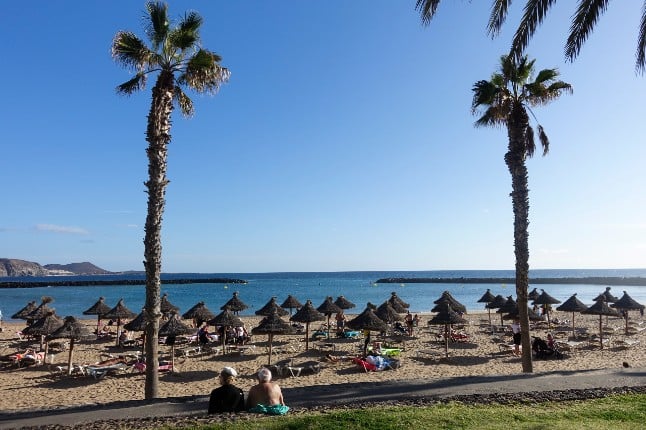CANARY ISLANDS
Swedish party head calls for crisis chief to resign over Canaries trip
The leader of Sweden's centre-right opposition has called for the head of the country's crisis preparedness agency to resign after he took a holiday in the Canary Islands which broke national recommendations.
Published: 6 January 2021 12:28 CET

Dan Eliasson, the head of the Civil Contingencies Agency, has argued that the trip was necessary. Photo: Marianne Løvland/TT
“If I led Sweden's government,” Ulf Kristersson wrote on his Facebook page. “I never would have accepted that the head of the country's crisis preparedness agency first preaches to the people that you should avoid everything unnecessary, and then themselves travels overseas and leaves the land, just as the crisis is worsening.”
“It's an abdication of responsibility. He should accept the consequences and leave his job,” he added.
Pressure has been growing on Dan Eliasson, the head of the Swedish Civil Contingencies Agency (MSB), over the trip, which came to light shortly after the country's prime minister, Stefan Löfven, was photographed shopping, and the finance minister Magdalena Andersson was photographed hiring skis in a Swedish mountain resort.
Eliasson is a career civil servant who became a target for the populist Sweden Democrats when he headed the Swedish police from 2014 to 2018.
Hans Wallmark, the Moderate Party MP who was President of the Nordic Council between 2014 and 2019, was in the Canary Islands at the same time as Eliasson, and even spent some time with Eliasson and his family as their sons are friends.
After Kristersson's demand for Eliasson's resignation, it emerged that yet another Moderate MP, Cecilie Tenfjord Toftby travelled to Spain over Christmas, and even did a radio interview criticising Löfven for going shopping while she was in Spain.
Kristersson said that what made Eliasson's case particularly serious was that it was about more than failing to provide a good example.
“He has operative responsibility for leading Sweden in a crisis and should therefore be in the country, ready to act.”
Kristersson called on the country's government to state clearly whether it still had confidence in Eliasson or not, threatening that otherwise the Moderates would call Eliasson to the parliament's justice committee themselves, so that he could be questioned over his trip.
Url copied to clipboard!


 Please whitelist us to continue reading.
Please whitelist us to continue reading.
Member comments